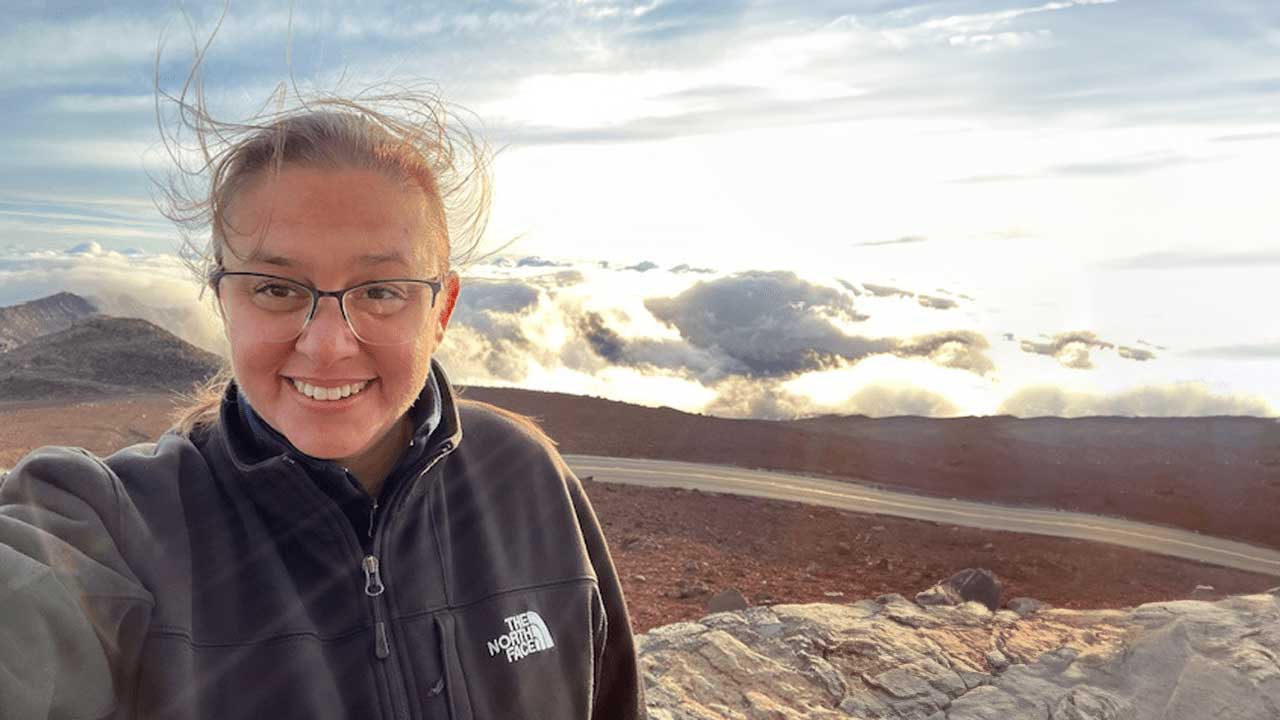A childhood dream of becoming an astronaut along with a PhD in Experimental Psychology led her to being the product lead on KWYN® SOLAR, a VR training tool for understanding the space domain.
Q: Tell us a little bit about your background.
A: I did my undergraduate degree in Psychology, and after working in the medical field—developing protocols for submission to the FDA, training clinical sites, recruiting participants and running the study, collecting and reporting data—the protocol was approved. I love research, and with much encouragement from several mentors, I went back to school and received a PhD in Experimental Psychology with a focus in Cognition from Northeastern University. I loved studying how people think about risks and the impact those thoughts have on their decision and behaviors.
Q: What is your favorite part about your job at Charles River Analytics?
A: Early in my career, I was introduced to research in the pharmaceutical and medical device domains. I love being at Charles River because the scope of the questions we are trying to answer and the problems we are trying to solve is so diverse. I still have some projects with medical focus, which overlaps with my work early in my career, but now I also work on projects across various domains for the Army, Navy, Space Force, and government research agencies. Each one of them is so different.
“I adore the work and the people. And the research!”
Q: Can you tell us a little more about your work specific to KWYN™ SOLAR and the aspects of Cognitive Systems Engineering (CSE) that play into it?
A: With KWYN SOLAR, it’s about digging into the requirements, working with instructors and trainers to identify concepts people struggle to understand, like spatiotemporal visualizations or orbital dynamics, and helping space operational teams to identify their information needs and workflows. This informs our requirements and development of new functionality. Then it’s about making sure that the new functionality is both easy to discover and seamless to implement and incorporate into the great work our customers are already doing.
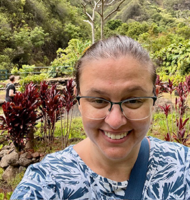
“There is a lot about space that is counterintuitive and not easy to grasp. When people put on the KWYN™ SOLAR headset, it goes from ‘oh wow’ to ‘aha’!”
Q: What gets you excited about working on a project like KWYN SOLAR?
A: Where do I start? When we put the headsets on people, whether they are new to the space domain or have spent their entire careers in it, it’s amazing to provide them with a tool that lets them discover something new.
Something that never gets old for me is when our super users, who are also space domain experts, figure out new capabilities within the system and then demonstrate that capability back to us. The VR engineering team at Charles River is amazing and they are the reason we can iterate and deliver new functionality that is so important to our customers. So, it’s really the interaction with users, identifying new requirements, and being able to deliver useful and intuitive functionality that excites me most.
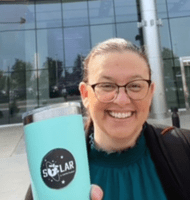
From a personal perspective, I’ve also had a lot of fun discovery moments on my own. Spending time building scenarios and playing the scene inside the headset, I’ve had quite a few “aha!” moments. As a researcher, getting to the right question is something I really enjoy, and exploring the space domain in KWYN SOLAR has helped me refine some of those questions. This continued discovery and learning—that’s what keeps me motivated.
Q: Any advice for people trying to break into the field of cognitive systems engineering?
A: Thankfully, there’s plenty of resources and opportunities out there (classes, books, organizations, websites, internships, other researchers). More importantly, though, I think the things that helped me are being curious, being comfortable with uncertainty, and having a willingness and desire to learn the “how” and “why.”
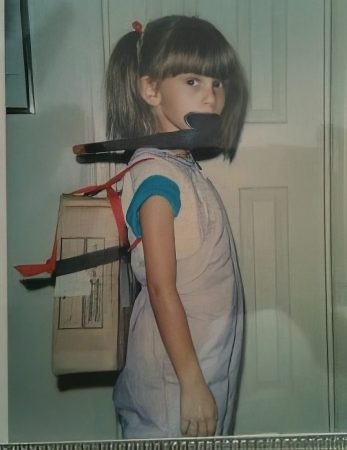
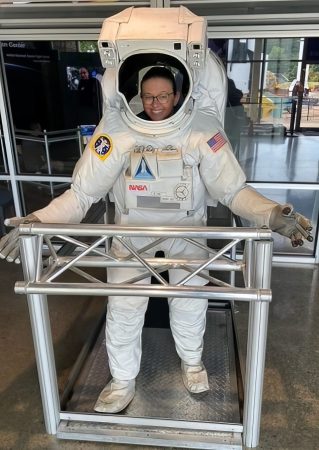
Q: Any fun or interesting facts about you that most people do not know?
A: I want to be a locksmith when I retire!
I did a ton of theater (mostly playwrighting and directing) through college and for a while after. There’s actually a lot of overlap between theater and psychology. I love jigsaw puzzles, and I usually complete one a week.
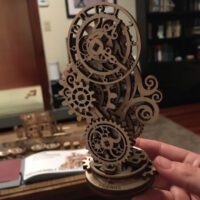
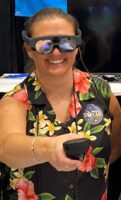
Work-wise, it’s ironic that I work in VR so much because I get “motion” sick pretty easily, even while standing still with the headset on. My vision also isn’t great, so sometimes I’m naturally the “canary in the coal mine” when we do testing. Despite all of that, I still love working in AR and VR and am excited about the opportunities it presents!

